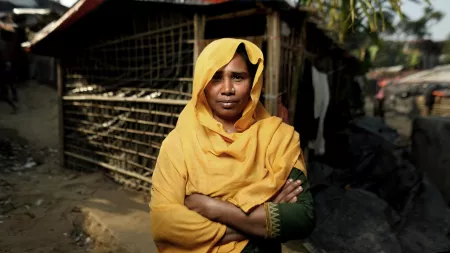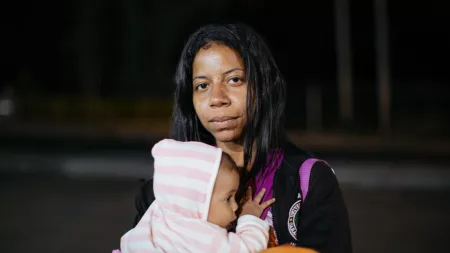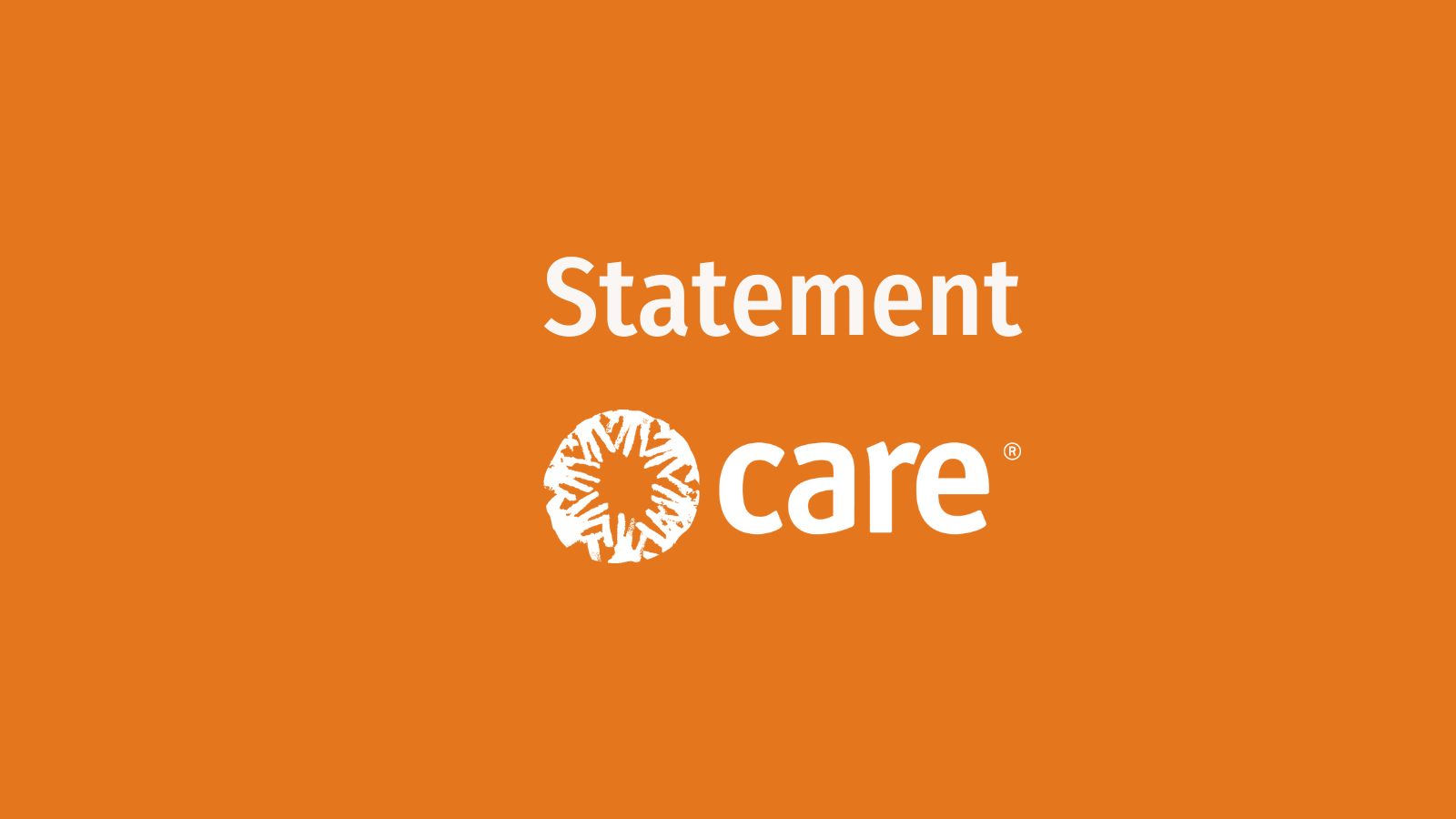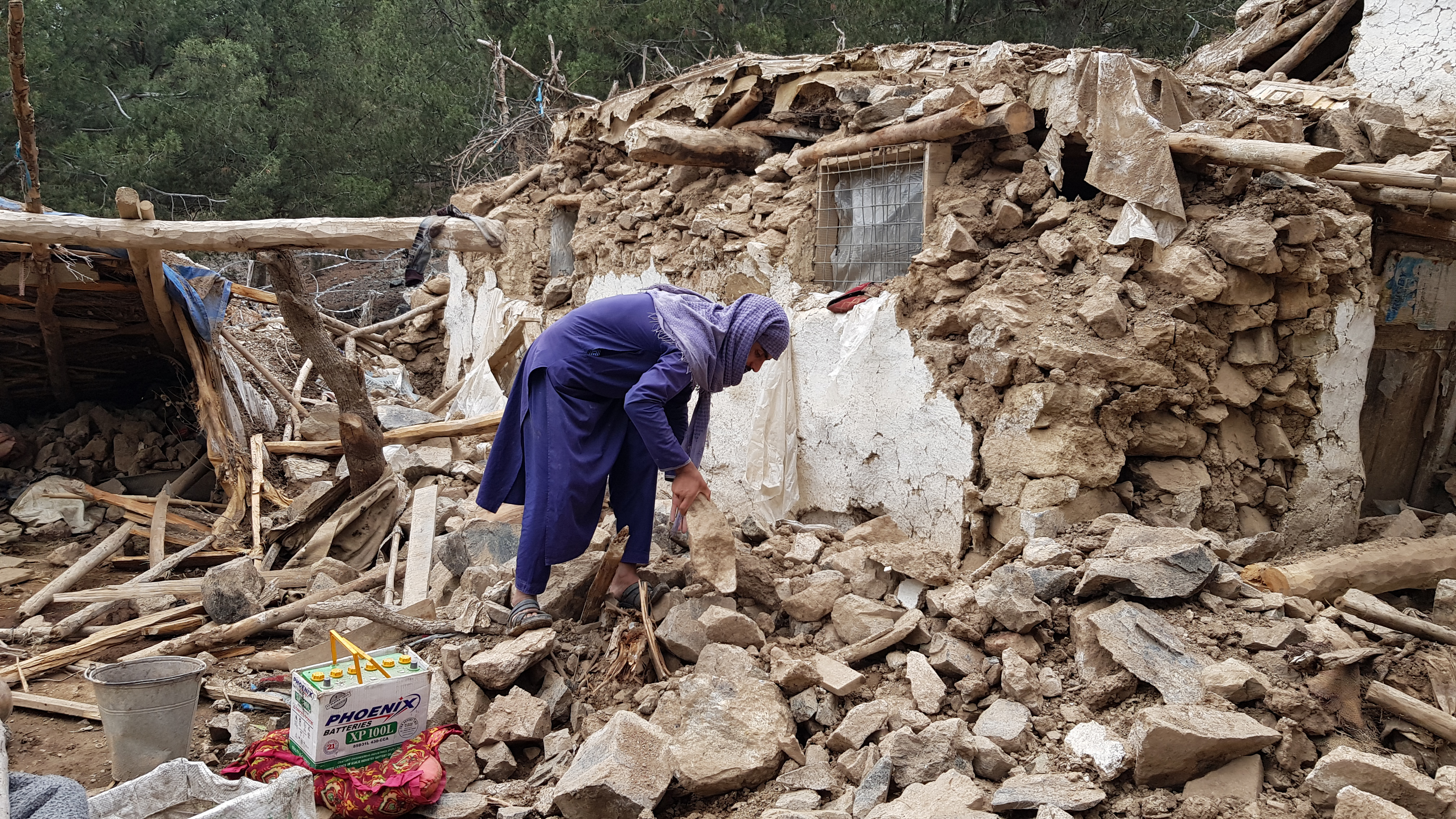Israeli siege of northern Gaza: Hundreds of thousands of people endure catastrophic conditions
Intensified attacks on health workers and the few remaining health facilities in the north of Gaza kill two of CARE’s partner Juzoor staff members.

CARE works with local partners with the aim to reach 50 million people affected by crises by 2030.
The number of people in need of humanitarian assistance globally is at unprecedented levels, exacerbated by the climate emergency, conflict and the ongoing COVID-19 pandemic. Up to 811 million people in the world are currently facing food insecurity and over 1% of the global population is now displaced.
Women and girls are disproportionately affected by crises, and in ways that differ to men. Despite this, they are typically left out of humanitarian coordination, assessments, decision-making, and planning procedures. Our experience tells us that women are frequently the frontline responders within their communities when a crisis strikes, and they possess valuable knowledge, influence and expertise on what is needed. This is why CARE International has a special focus on understanding and addressing the power and gender imbalances that affect women and girls in crisis situations and prioritizes working with women’s organizations to lead the response.

CARE International and our partners prepare for and respond rapidly, at scale, to sudden onset natural disasters, protracted and complex crises (as well as shocks within them), and public health emergencies and their secondary impacts.
CARE International plays a leading role in transforming the humanitarian sector by putting gender at the center of our responses. We use specific approaches that protect people’s dignity, and build resilience and social cohesion in communities before, during, and after an emergency. Our core humanitarian sectors are:
By working with local partners, CARE provides quality and gender-focused humanitarian assistance to 10% of those affected by major crises, with a goal to reach at least 50 million people by 2030.
Our programming is:
Since 2016, about half of our humanitarian programming has been implemented fully or mostly with local partners, with increased attention on the powerful role of local women’s organizations in delivering locally led and gender-transformative humanitarian response.
Our humanitarian programming uses models like Women Lead in Emergencies (WLiE) bring together different elements of CARE’s gender in emergencies work and is applied by CARE and our partners to transform social and gender norms in humanitarian action. Further to this, CARE uses evidence from our Rapid Gender Analysis and participatory needs assessment processes to ensure that our humanitarian work is needs-based and takes an intersectional approach to serve the most vulnerable or at risk within a specific context.
CARE International will continue to partner with governments, UN agencies, international and national NGOs, (including NGO networks), academic institutions, and private sector actors in countries, regions, and at the global level. We invite like-minded organizations, from social movements to inter-governmental organizations, to partner with us in ways that allow us to strengthen our joint humanitarian response on the ground.
Read our Vision 2030 Impact Area Strategy for Crisis Response here.
Intensified attacks on health workers and the few remaining health facilities in the north of Gaza kill two of CARE’s partner Juzoor staff members.

Humanitarians detained in Yemen will now reportedly face criminal prosecution. The decision jeopardizes humanitarian efforts and, as a result, millions of lives. Together with the UN & peer INGOs, CARE calls for the immediate and unconditional release of staff arbitrarily detained in Yemen.

As the Asia-Pacific Ministerial Conference on Disaster Risk Reduction approaches, CARE and partners highlight the urgent need for gender-focused climate solutions. “By 2050, climate change could push 158 million women and girls into poverty."

One year after the devastating Herat earthquakes, Afghan women continue to face significant challenges, including trauma and economic instability, despite some progress in rebuilding.

As we mark World Humanitarian Day, we put the spotlight on six women aid workers who are bringing desperately needed relief to people facing crises, especially women and girls.

Northwest Syria faces a deepening crisis as extreme heat, water scarcity, and food insecurity intensify, compounded by dwindling aid. Amira*, a mother of six provides a stark illustration of the daily struggles faced by millions in the region.

CARE and INGOs operating in Gaza and the West Bank provide an overview of the significant obstacles hindering our humanitarian efforts in the Strip.

This Rapid Gender Analysis (RGA) applies a gender lens to better highlight the specific needs, priorities, and barriers to services and life-saving assistance available to war-affected people in Ukraine.

With an escalation of the war in Ukraine and no end to the conflict in sight, CARE Poland continues to provide humanitarian assistance and support the ongoing crisis.
In FY2023, CARE worked around the world, contributing to saving lives, fighting poverty, and increasing social justice.